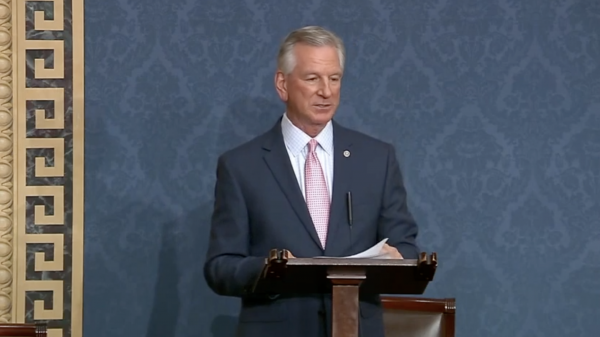By Deborah Love
Justice Brandeis wrote, “the right to privacy is the right to be left alone.” Privacy is an essential aspect of a free society. Yet Representative Collins is once again pushing a State longitudinal database bill in the Alabama Legislature. A State longitudinal database is a centrally controlled database which collects and stores personally identifiable information on students. This centrally controlled database will track students throughout their lives and continuously consolidate personal data between multiple State agencies. While the bill has been renamed “Answers” this year it provides few. Instead it will give broad powers to what will be a newly created agency and advisory board with no accountability. (pg. 13)
Though the Alabama Department of Labor has promised the bill does not allow the collection of private and personal student information, the bill itself contradicts that claim. Its collection and retention is clearly anticipated in the bill. The bill describes “security clearance requirements for individuals with access to personally identifiable information.” (pg. 16) The bill goes further to describe who has direct access to this information. “Direct access to personally identifying information in the system shall be restricted to staff and authorized representatives of the office.” (pg. 16) Personally identifiable information could be a home address of a student or where they work. This means a government employee not involved with a child’s education on a local level will have access to a student’s geographic location on a daily basis with access to this information. (pg. 5)
Information is personally identifiable because anyone can use this information and then identify the student by name. Personally identifiable information can be anything that identifies you as you. Aggregate data points combined can also become personally identifiable when combined in one central lo-cation. HB97 and its companion bill SB153 will combine information from ten State agencies in a central location and can potentially combine information from “any additional public agency or entity”. (pg. 14) The bill does not provide new State protection for student privacy; instead, the bill only punishes an actor merely for improperly sharing student data without the permission of the agency. (pg. 18) The agency though will be collecting personally identifiable information on individual students. Government tracking of individual citizens including students is a violation of fundamental privacy rights. Senator Del Marsh and the Department of Labor claim that the information will be kept confidential. But this is a false promise as the bill only contains vague promises to create plans at a later date or internal policies with no outside accountability. (pg. 3, 8, 12, 15) HB97/SB153 acknowledges that breaches will occur as it instructs the advisory board to develop “plans for responding to security breaches..” (pg. 18)
The philosophical foundation of HB97/ SB153 is that central planning works, that governments have the right to monitor the movements of individuals in addition to collecting unlimited information on private citizens throughout the course of their lives. These premises violate essential liberties that must be respected in a free society and violate the proper role of government in society. Human history has provided many examples of what types of government abuses result when this type of power is given to the government. If the government has the right to track and collect personal information through-out the course of an individual’s life, then there is no truly free citizen.
Only current State and Federal law are mentioned in HB97/SB153 as privacy protections; but the comprehensive Student and Parent Privacy Protection Bill was not passed last Alabama Legislative Session. In addition, the Alabama bills cite dependence on the Federal Family Education Rights and Privacy Act (FERPA) which was passed in 1974. However, the Federal Department of Education gutted FERPA in December of 2011. On January 3, 2012, changes went into effect that allowed for the collection of student data by third parties. FERPA is outdated to address current privacy threats with the changes from emerging technology. Thus there is no State or Federal law which protects the massive amount of student data that will be collected in this longitudinal data system.
At the first Senate meeting on the bill this session the sponsor claimed the purpose of the bill was “to meet the demands of industry.” This vague purpose is focused subsidization of certain business interests and increasing power of unelected State agency heads. This alliance is for the mutual benefit of these special interests, but not for students. Parents and students should know that this bill allows and requires a centrally controlled data collection system to track students through the course of their lives and to collect unlimited personal information on students and potentially other citizens. Alabamians, parents, and eligible students must ask themselves how important their privacy is because it is about to be handed over to a State agency and advisory board controlled by special interests. Students, parents and private citizens were not allowed to speak at House and Senate meetings on the bill this week even though public hearings were requested. Yet multiple government agencies were allowed to speak in support of the bills. Apparently for supporters of HB97/SB153 your child’s privacy means less than the misguided demands of big industry and bureaucrats.
Deborah Love is Executive Director of Eagle Forum of Alabama and was appointed and served on the Alabama ESSA Implementation Committee on Data Collection and Early Learning sub-committees.
























































You must be logged in to post a comment Login